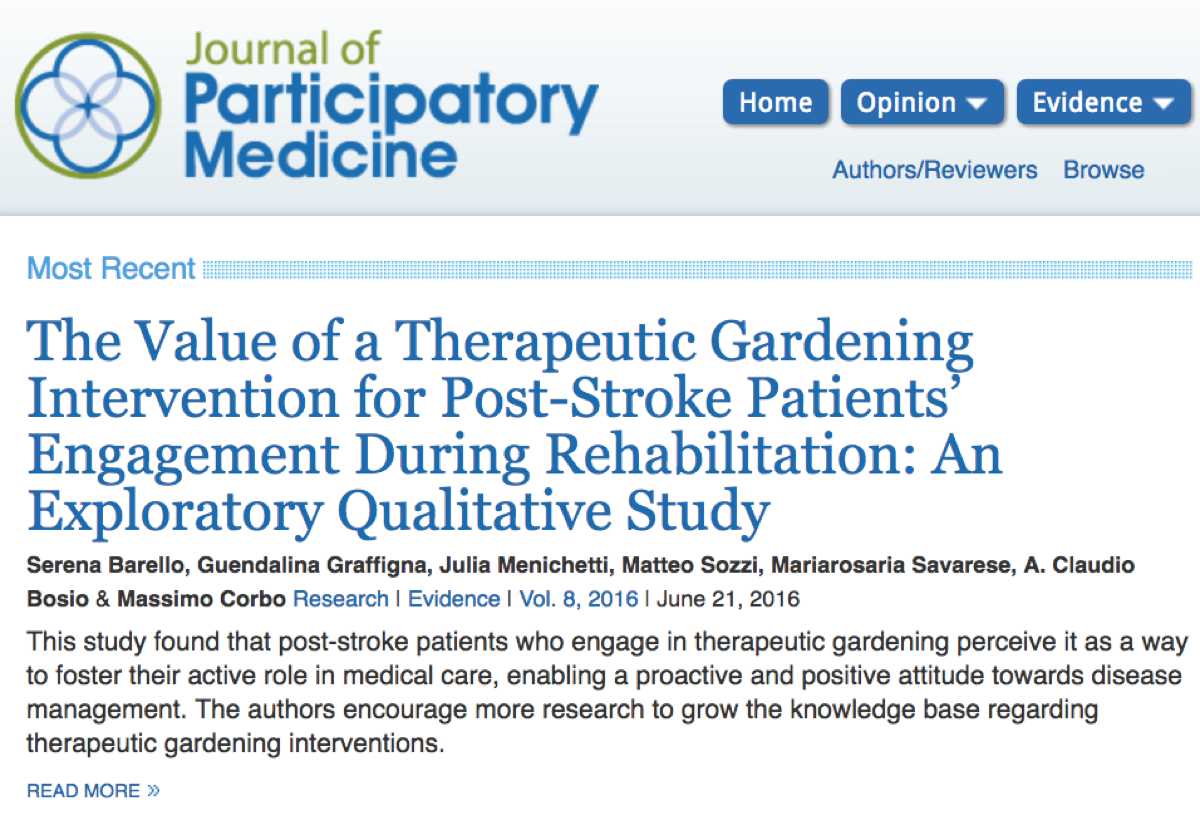 A new article in our Journal of Participatory Medicine explores an area that apparently has had no prior literature: the effect of gardening on how well stroke patients engage in their care. From the abstract:
A new article in our Journal of Participatory Medicine explores an area that apparently has had no prior literature: the effect of gardening on how well stroke patients engage in their care. From the abstract:
Five main themes were identified from interviews and diaries:
1) the positive experience of nature,
2) therapeutic gardening as a protected self-expression space,
3) contact with nature as a boost for self-efficacy,
4) the plant as a catalyst of the patient-therapist relationship,
5) therapeutic gardening as a bridge between the hospital environment and the outside world.
Post-stroke patients who engage in therapeutic gardening perceived it as a way to foster their active role in medical care, enabling a proactive and positive attitude towards disease management.
It is of vital importance that therapeutic gardening interventions are appropriately evaluated in order to develop the existing evidence base.
And from the discussion:
… therapeutic gardening can be considered a virtuous example of inclusive care practice, where a general sense of belonging reduces the barriers that prevent post-stroke patients from participation in rebuilding their health and well-being. In our study, being engaged in this kind of activity appeared to foster a sense of belonging and self-worth in post-stroke patients.
The lead authors are from Catholic University of the Sacred Heart in Milan, Italy and also wrote our 2014 article The Challenges of Conceptualizing Patient Engagement in Health Care: A Lexicographic Literature Review.






Recent Comments